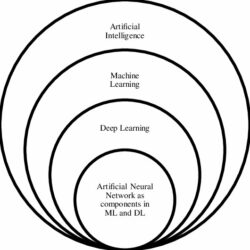Edited by Ryan Calo, A. Michael Froomkin and Kristen Thomasen
‘Robot Law: Volume II assembles cutting-edge scholarship from leading experts, many of whom are regular contributors to the prestigious We Robot Conferences. This timely volume offers incisive analysis of pressing legal and ethical challenges posed by AI and robots; from autonomous machines to algorithmic-generated issues. This is an indispensable resource for interested scholars, policymakers, and anyone grappling with the societal impacts of emerging technologies.’
– Fumio Shimpo, Keio University, Japan
Here’s a free chapter: Abeba Birhane and Jelle van Dijk, Robot rights? Let’s talk about human welfare instead
I think this terrific paper should be read by anyone who is even flirting with the idea that robots (or AIs!) are the sort of thing that are entitled to any rights, much less human-like rights.
Yes, I’ll bracket out two scenarios: one, maybe someday we build an AI that really seems to be sentient. Not holding my breath, but if we get there, we can cross that bridge.
Second, and more realistic, we might decide that humanoid robots, or animal-like robots, should be entitled to some protections from abuse not because they ‘deserve’ it, but because we discover that allowing abuse of machines that look like living things might have bad effects on the abusers that they then carry over to their interactions with animals and people. In other words, if kicking robot dogs trains you to kick real ones, or abusing very humanoid robots habituates you to abusing people, we might want to do something about that. A similar argument is that we might find it expedient to treat AIs as having ‘rights’ for the same reasons (some of us) think the legal fiction makes sense for corporations: namely it advances some human social goals.
But I’ve gotten away from my point, which was to invite you to ask your library to buy our expensive book, or to invite you to buy the much more reasonably priced e-copy. Give your librarian this info:
The electronic edition should be available, I’m told, within a couple of weeks.
Meanwhile, here’s the entire wonderful table of contents:




 Inspired by the silly kerfuffle about President Biden’s supposed memory issues in his five-hour interview with a partisan special prosecutor, conducted while Biden also was involved in issues about the Middle East, and perhaps also inspired by the death of Toby Keith, I asked GPT-4 to take on the persona of an experienced writer of hit songs and write me a country music song on the theme “I’m voting for Grandpa (because the alternative is so much worse)”. The results were not half bad:
Inspired by the silly kerfuffle about President Biden’s supposed memory issues in his five-hour interview with a partisan special prosecutor, conducted while Biden also was involved in issues about the Middle East, and perhaps also inspired by the death of Toby Keith, I asked GPT-4 to take on the persona of an experienced writer of hit songs and write me a country music song on the theme “I’m voting for Grandpa (because the alternative is so much worse)”. The results were not half bad: